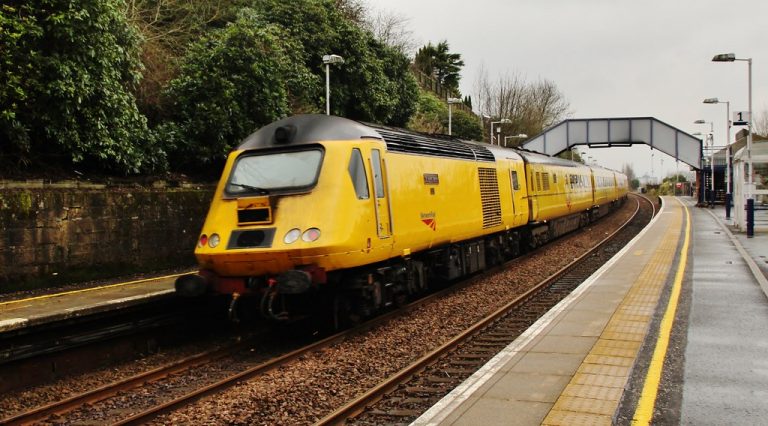A new online tool to help the rail industry measure the social value of its investments, infrastructure projects, and day-to-day operations has recently been launched. Quadrant Transport looks at what this tool means for the rail industry’s future and how it will have a positive impact on the travelling public.
The Rail Social Value Tool (RSVT), co-funded by Network Rail, is provided by the Rail Safety Standards Board (RSSB) and Loop (formerly Social Profit Calculator). It is freely available for those in the Great British rail industry.
Allowing the industry to forecast, monitor, and evaluate the social values of its activities, the tool will benefit the industry and rail passengers.
RSVT is about measuring the impact on the welfare and wellbeing of both individuals and wider society, the net positive (and negative) social, economic, and fiscal value that a project, organisation, or specific initiative generates.
People can now work easily collaboratively using the online tool and use it to assist them in doing their job more efficiently.
Maximising positives impacts on passengers is essential to building confidence
Network Rail’s corporate approach to social value is explained in its Network Rail Social Value Framework, which supports them in maximising positive impacts on the travelling public. It is aimed at teams, projects, and programmes whose work has the potential to cause material impacts on people.
Enabling the industry to understand how rail impacts its passengers means confidence will be built among the travelling public. Building confidence is key and putting passengers at the core of everything the industry does is essential.
Not only does this impact help to build confidence for those individuals, but it helps prevent extra costs to both the individuals and the industry. For example, ensuring that people can make an end-to-end journey smoothly connects them to their jobs; this boosts their finances and their wellbeing.
Liz Holford, Network Rail’s Sustainability Strategy Manager (Social Performance), said: “The launch of the Rail Social Value Tool is an important milestone which enables our industry to make a step-change in how we understand and manage our impacts on people.
“We’re already using the tool to forecast and maximise the social value of station redevelopments and infrastructure enhancements as well as current projects and some completed ones, and we’re looking forward to using it further to manage and improve the impact our railway has on society.”
The Rail Social Value Tool will enhance not only safety and reliability for train passengers but can measure and monetise a wide range of benefits for the industry.
The Rail Social Value Tool will help to improve the rail industry
With 500 indicators that are organised across 12 social impacts, the RSVT’s benefits include improving safety, creating jobs, change to air quality, increasing biodiversity, educating young people, volunteering opportunities, co-designing infrastructure, and design features that can make rail travel more accessible and inclusive.
George Davies, RSSB’s Director for Sustainable Development, said: “It’s fantastic to see the Rail Social Value Tool launched today. It’s a first for the rail industry, and I would like to thank everyone involved in its development.
Rail is one of the most sustainable forms of transport. However, until now, we haven’t been able to measure its social value in sufficient detail.
“We can now assess, and importantly place a financial value on the effect the railway has in a number of areas, including the natural environment, communities, people and their health, cultural heritage, housing, inclusivity, and distribution of opportunities.
“As we transform the Railway and deliver the vision of the Williams-Shapps Plan for Rail, the Rail Social Value Tool will guide decisions on rail development across the country to ensure the best return on those investments for society.”
Gerard Toplass, Group Chief Executive at Loop, said: “We are proud to have worked with RSSB and the wider rail sector to help them deliver the Rail Social Value Tool. Together we have developed 449 measures (KPIs) across 12 social value impact areas that cover people, sustainability, and economic activity.
It is a first for the industry, and our software team worked in true collaboration with RSSB to develop a simple and accessible tool that can be used throughout the supply chain and is aligned to the sector’s needs and objectives.
Over the next five years, we look forward to further developing the tool and helping the rail sector continue to deliver measured social value.”

